To provide the best experiences, we use technologies like cookies to store and/or access device information. Consenting to these technologies will allow us to process data such as browsing behaviour or unique IDs on this site. Not consenting or withdrawing consent, may adversely affect certain features and functions.
The technical storage or access is strictly necessary for the legitimate purpose of enabling the use of a specific service explicitly requested by the subscriber or user, or for the sole purpose of carrying out the transmission of a communication over an electronic communications network.
The technical storage or access is necessary for the legitimate purpose of storing preferences that are not requested by the subscriber or user.
The technical storage or access that is used exclusively for statistical purposes.
The technical storage or access that is used exclusively for anonymous statistical purposes. Without a subpoena, voluntary compliance on the part of your Internet Service Provider, or additional records from a third party, information stored or retrieved for this purpose alone cannot usually be used to identify you.
The technical storage or access is required to create user profiles to send advertising, or to track the user on a website or across several websites for similar marketing purposes.
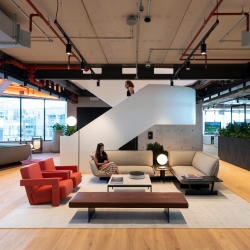 When it comes to conversations about work and workplaces, the past year has offered a fully immersive experience. Everybody now has an opinion. Inevitably some of them are better informed and more rooted in experience than others. So, after a full year of talk and as we return to some form of routine working life, the time has come to take stock. Few organisations and people will remain untouched by the sudden shift in attitudes towards working life, so we asked four workplace experts for their views on the current state of play. (more…)
When it comes to conversations about work and workplaces, the past year has offered a fully immersive experience. Everybody now has an opinion. Inevitably some of them are better informed and more rooted in experience than others. So, after a full year of talk and as we return to some form of routine working life, the time has come to take stock. Few organisations and people will remain untouched by the sudden shift in attitudes towards working life, so we asked four workplace experts for their views on the current state of play. (more…)







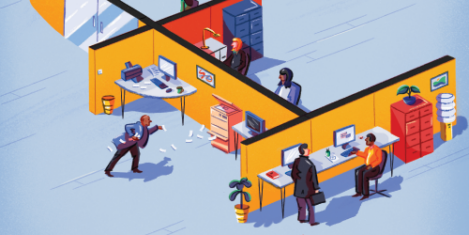
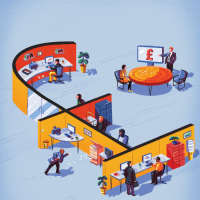 The focus on creating a more sustainable workplace is increasing. Many designers, specifiers, manufacturers, suppliers and, of course, users are pledging their allegiance to the cause. Some are driven by a genuine recognition of the climate crisis whilst others are appreciating that commercially, it’s an essential direction. ‘Zero to landfill’ has been given ‘green bragging rights’ for some time. In reality, due to the significantly lower cost of incineration versus recycling, most material isn’t reclaimed, it is burnt. Whilst ‘energy from waste’ might alleviate some guilt, it is still contributing to pollution.
The focus on creating a more sustainable workplace is increasing. Many designers, specifiers, manufacturers, suppliers and, of course, users are pledging their allegiance to the cause. Some are driven by a genuine recognition of the climate crisis whilst others are appreciating that commercially, it’s an essential direction. ‘Zero to landfill’ has been given ‘green bragging rights’ for some time. In reality, due to the significantly lower cost of incineration versus recycling, most material isn’t reclaimed, it is burnt. Whilst ‘energy from waste’ might alleviate some guilt, it is still contributing to pollution. 
 Innovation of materials and creativity remain at the forefront of British design as 27 outstanding submissions from three categories are to be awarded the coveted
Innovation of materials and creativity remain at the forefront of British design as 27 outstanding submissions from three categories are to be awarded the coveted 
 The workspace innovator
The workspace innovator 
 Tens of thousands of restaurant, hotel, event and leisure jobs are available as England moves to the next step on the roadmap out of lockdown on Monday 17th May, but jobseeker shortages are making these jobs hard to fill, according to new research from global job search engine
Tens of thousands of restaurant, hotel, event and leisure jobs are available as England moves to the next step on the roadmap out of lockdown on Monday 17th May, but jobseeker shortages are making these jobs hard to fill, according to new research from global job search engine 
 New research by
New research by 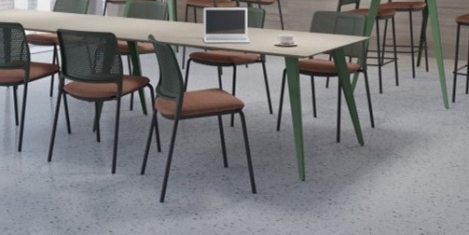
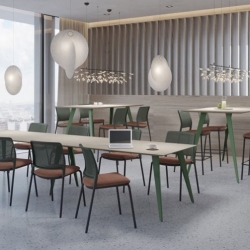 The angular, tapered legs of ‘Zig’ tables are reminiscent of a Lynn Chadwick sculpture. Their folded steel form creates a striking silhouette at both standard and poseur heights. Almost retro-futuristic in style, these tables can enhance a variety of settings such as cafes, meeting rooms and collaboration zones.
The angular, tapered legs of ‘Zig’ tables are reminiscent of a Lynn Chadwick sculpture. Their folded steel form creates a striking silhouette at both standard and poseur heights. Almost retro-futuristic in style, these tables can enhance a variety of settings such as cafes, meeting rooms and collaboration zones. 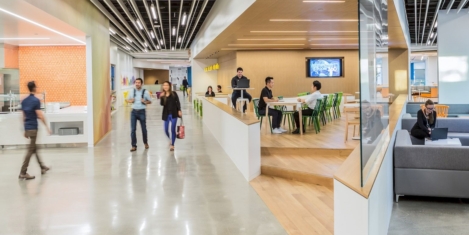
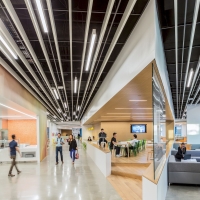

 Every week a new survey is published or a statement from a CEO hits the press related to corporate occupier’s desire to adopt a form of hybrid working for the long-term post Covid 19. And as a result, the desire to occupy less space in their central office hub. Landlords are asking- What do we do now to attract and keep great occupiers, and fill our buildings? I have an idea that is of its time. A time when the world has started to cooperate, collaborate, and work towards a common purpose. When work, life, values, and priorities are shifting. Employers are seeking to look after their people in a holistic way in and out of the office.
Every week a new survey is published or a statement from a CEO hits the press related to corporate occupier’s desire to adopt a form of hybrid working for the long-term post Covid 19. And as a result, the desire to occupy less space in their central office hub. Landlords are asking- What do we do now to attract and keep great occupiers, and fill our buildings? I have an idea that is of its time. A time when the world has started to cooperate, collaborate, and work towards a common purpose. When work, life, values, and priorities are shifting. Employers are seeking to look after their people in a holistic way in and out of the office. 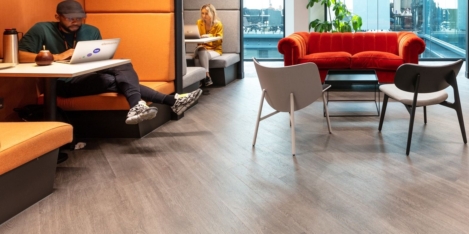
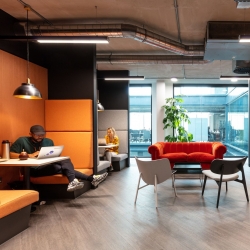 Hybrid working runs the risk of becoming a blanket term, interpreted on a very surface level, when it has the potential to offer a much greater opportunity for businesses to open up and re-examine the culture and experience of their staff, alongside where they want to take their business in the future, as well as fast-tracking mental health and wellbeing to play a central role in workplace strategy.
Hybrid working runs the risk of becoming a blanket term, interpreted on a very surface level, when it has the potential to offer a much greater opportunity for businesses to open up and re-examine the culture and experience of their staff, alongside where they want to take their business in the future, as well as fast-tracking mental health and wellbeing to play a central role in workplace strategy. 
 No sooner had the world learned about the existence of
No sooner had the world learned about the existence of 








May 20, 2021
The pandemic will transform the way we commute
by Tim Burgess • Comment, Flexible working, Wellbeing